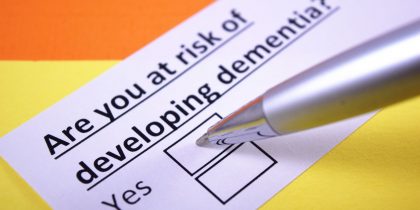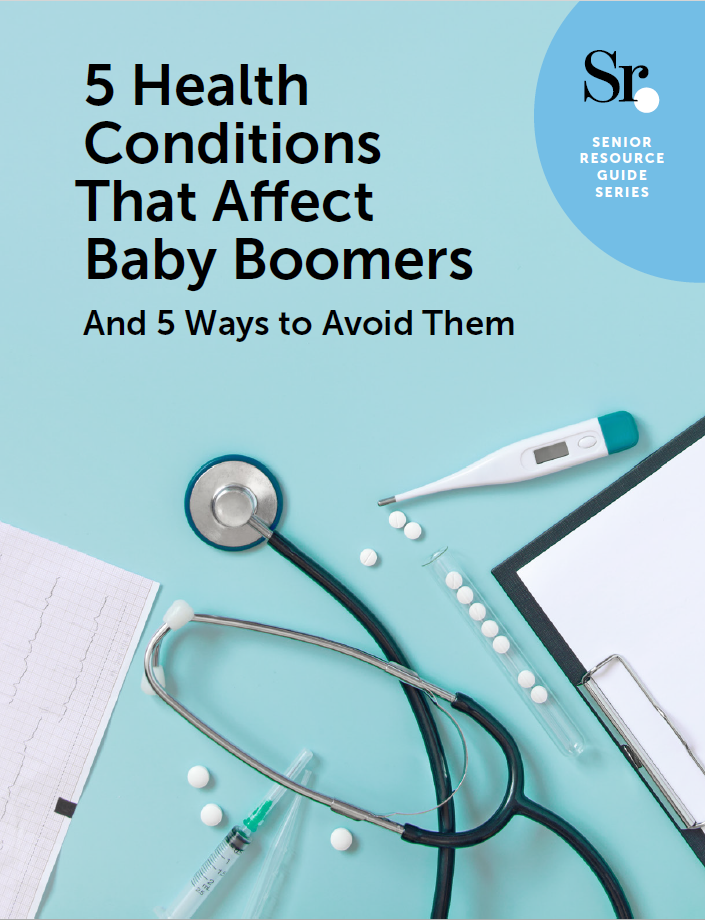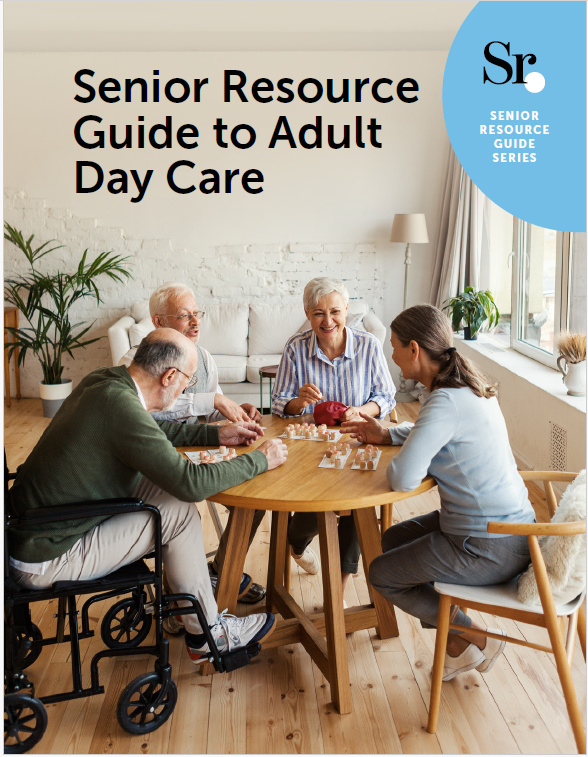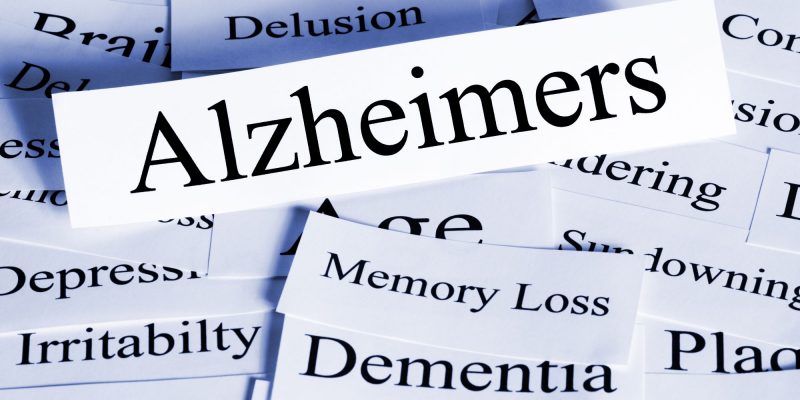Alzheimer’s and Dementia (Page 5 of 7)
Alzheimer’s Vs. Age-Related Memory Changes
Just because someone is experiencing changes in their memory, does not mean that they have dementia. Let’s compare some Alzheimer’s and age-related memory changes.
Advances in Alzheimer’s Research
Suzanne is joined by Dr. Paul Winner, the Senior Director of the Premiere Research Institute and Attending Neurologist at Palm Beach Neurology in West Palm Beach, Florida, to talk about advances in Alzheimer’s research.
Dr. Winner says, “There’s definitely a lot of optimism for patients with Alzheimer’s. We’ve started to understand this disease a little better. We understand a lot more about amyloid, its toxic form, about tau, how it progresses, how there’s nerve damage. These are all targets, these are all options to stop them. So our targeted research is to try to remove the toxic amyloid, to prevent its formation, to uncouple it, make it easier to be removed. There are basically plaques and tangles, amyloid and tau. Also to address the glial cell for inflammation. These are all targets — these are all options, and all of these are being tested right now, and there is definitely optimism in several of them. Some we feel we’ll have some FDA approved medicines, possibly in 2023, definitely within the next two or three years.
“We we try to be very positive, but we do have to be a little careful. We do not have the ability today to stop Alzheimer’s dementia. Let’s make that clear. We do not have a cure. That’s okay, we’re working to that. But we can slow the progression of the illness. And we have shown we were able to remove amyloid. It takes 15 to about 22 years for the amyloid to be deposited. During all that time, it’s causing trouble, damage, inflammation, cell death, production of tau. You want to get there even before patients have clinical symptoms. How in the world could we do that?
“Well, we have bio-markers now — we can tell if someone has positive amyloid, positive tau, positive nerve damage, even though it’s not really affecting their life yet. So we can do that today, and those studies are ongoing, we are doing it now, I have patients under treatment. Then there’s people who have mild cognitive impairment who come in voluntarily: They’re starting to forget things. They’ve got to make lists to go to the grocery store, they’re forgetting names, which they never did before. Or they need directions, they need someone else to help them in the car to drive, they need someone else to help them with the checkbook, because they’re making too many mistakes. This is where we can slow down the deposition of amyloid in the brain — that’s been done. In fact, there’s already a medicine, aducanumab, that’s FDA approved, but there are a lot of issues around it, and it’s only used still in research primarily.
“But two others have shown very significant promise recently in Phase 2 studies. The clinical relevance is still being determined and it doesn’t happen right away. It takes about six months to a year plus to remove amyloid to about a 60 to 70+ percent, and it takes about 18 months for us to really see what I’ve just observed, but this is significantly positive. The medicine does what it’s supposed to do. It removes the amyloid, and you had less of a decline in the group that was on this active medicine.
“There’re many other advances in Alzheimer’s research. We’re looking at anti inflammatory-type medicines, neuro-protective type medicines. Those are a little bit in their earlier studies, but we do have some promise.”
Learn more about the Athira Pharma Alzheimer’s LIFT-AD research study, Interested in learning more? Contact Premiere Research Institute at (561) 296-3838, contact Dr Winner at (561) 851-9400 or learn more about him here. This podcast is courtesy of Athira Pharma.
Lifestyle Changes to Avoid Dementia
Suzanne is joined by Dr. Paul Winner, the Senior Director of the Premiere Research Institute and Attending Neurologist at Palm Beach Neurology in West Palm Beach, Florida. Dr. Winner addresses various lifestyle changes to help avoid developing dementia. He says, “There are risk actors. You want to avoid this as best you can. You don’t want this to happen, even if you’re predisposed genetically to develop it. There are some things you can do to help yourself now. Controlling your blood pressure and exercising are the two single best things you can do outside of getting your hearing checked:
* Have your hearing checked. It’s so easy to find out if you have a hearing deficit and to correct it today with hearing aids. That goes a long way.
* Correct your vision. If you have visual impairments, you want the best input into your brain so it can function as best it can.
If you’ve got metabolic syndrome, get it under control. If you have diabetes, control it as best as you can. Check your blood pressure. Studies have shown — the Sprint Mind study showed that controlling blood pressure clearly reduced the development of dementias. You want your blood pressure at 120 over 70 or less. Now obviously, if you’re symptomatic with a low blood pressure, you can’t do that, but most patients can, and you want to do that as soon as you possibly can.
* Overweight obesity is another risk factor. Do your best to avoid certain foods. Diet is important. You don’t want to wait till you have the symptoms — you want to get in front of it as best you possibly can. There are many medical and non-medical organizations that can give you some ideas about diet. Diet is complex. There are there’s a Dash diet, there’s a finger diet, there’s the Mediterranean diet. The diet that you can handle, that you can do, is the right one for you. There are some that statistically seem a little bit better. The Mediterranean diet’s pretty simple.
* Alcohol consumption, basically none is the best, but if you’re going to use it, it needs to be small quantities. The exact quantities are not clear. Remember, what do we use alcohol for in a clinical practice? We use it to clean off our tables, to kill viruses and bacteria. It is a caustic substance.
* Head trauma — please don’t do things that will ultimately result in you having a head injury, especially after the age of 40. If you’re predisposed to develop that toxic amyloid genetically, and you hit your head, you’re gonna accelerate that process. Do not go fix the roof if you’re 40 or 50. Hire someone to do that. I can’t tell you how many patients I have taken care of that have fallen off ladders when they were fixing gutters or the roof. Get someone to do that for you, if at all possible. Wear a helmet when riding a bicycle. If you’ve got problems with balance, use a stationary bike inside a protected area. I lost a good friend because, unfortunately, he had an injury that resulted in a subdural that clearly could have been prevented, and he’s not with us anymore. It accelerated the dementia aggressively, and within a matter of years he was no longer alive.”
if somebody wants to get tested how do they get tested? Dr. Winner explains, “I don’t want to be too optimistic here, because we’re still doing the research and this is early data, but we have medications that are clinically functioning and look very positive. We need to get the diagnosis correct, which means just getting a simple evaluation of a person’s history and a physical exam is not enough anymore. You need a neuro-behavioral test, administered by people who are very good at doing this, for a basic assessment. Then you’re gonna have to get into much more detail medically to actually get the diagnosis right, because, essentially, Alzheimer’s is about 60 to 70 percent of the dementias. Vascular dementia could be another 20 percent. They can coexist — in fact, the majority of them are mixed, but there is a predominant version on top of that. So you need to go to a center who’s familiar with that. And everything is changing very quickly. We should have FDA-approved medications very soon, we have one right now that is disease modifying.”
Learn more about the Athira Pharma Alzheimer’s LIFT-AD research study, Interested in learning more? Contact Premiere Research Institute at (561) 296-3838, contact Dr Winner at (561) 851-9400 or learn more about him here. This podcast is courtesy of Athira Pharma.
Test Procedures for Dementia
Suzanne is joined by Dr. Paul Winner, the Senior Director of the Premiere Research Institute and Attending Neurologist at Palm Beach Neurology in West Palm Beach, Florida.
When family members see that mom may be fine, but maybe Dad starts to have some memory issues. How do you start the process of having the conversation to get them tested? Dr. Winner says, “I think you want to let people know that we have very good diagnostic methods today. We can actually determine what it is. It could be something simple. So you need to go to a center, essentially a memory disorder center. If you really have a problem, something that’s essentially now affecting the family, that’s no longer, “I’m worried if I have a little bit of an issue with my memory,” then you have to go to a memory disorder center. They need to get to a place that can do 1) a very, very good history and 2) a very good physical exam, and they’re looking at domains of how the brain works. A good history can determine how long it’s been that there’s been memory issues. What was the initial problem? Was it a short term memory issue, was it an immediate memory issue, was it a behavior issue? Was it a movement problem? What is it? Because there’s all different kinds of dementias, or maybe it’s something else. A medication got changed a year ago and that’s when this all started. So there are some simpler problems. There’s thyroid conditions in the family and their medicine got changed. There’s a lot of different variables. So a very good history, a very good physical exam. You need to do laboratory studies, basic laboratory studies, to make sure there is not a problem with thyroid. There isn’t a B12 deficiency. There isn’t an autoimmune or infectious process. This is not expensive and not hard to do.
What happens next? Dr. Winner explains, “Next is a nerve behavioral test. You need proper testing on what is going on with the brain. Is the aspect that’s wrong? Is it memory? Is an executive function? Is it processing speed? All the different aspects, attention problems, is there a non-functional area or multiple areas? This gives you a clue right away of what you’re dealing with. Then you need a picture of the brain. You need to make sure there’s not another explanation, or maybe there’s a mix, there could be two dementias. Sometimes a brain tumor caused this. Sometimes it’s a meningioma with edema, and we can treat that, and they’re all better pretty quickly.
“Then let’s say we go through that and it’s suggestive of Alzheimer’s dementia. Well, you can make a clinical diagnosis, but you’re not going to be right a lot of the time. You need to go to the next level. The next level is bio markers. We have serum bio markers, but essentially the gold study we should do is to use a PET scan, an amyloid PET scan, and/or add to that a tau pet scan. Two proteins are involved in Alzheimer’s, amyloid and tau, so we can tell whether they’re present. If you do not have significant amyloid deposits in the brain, you do not have Alzheimer’s disease, period. But that test is expensive. It’s $5, $6, $7,000, and it’s not covered by insurance right now.
“Why is it so important to do this? We need to know the diagnosis. We must get it correct, because certain medicines are being developed for Alzheimer’s. Others are being developed for general dementias, others for Parkinson’s. Others may work at all of these different dementias. We need to know what the person has, so we can select the right medicine as we move forward.”
Learn more about the Athira Pharma Alzheimer’s LIFT-AD research study, Interested in learning more? Contact Premiere Research Institute at (561) 296-3838, contact Dr Winner at (561) 851-9400 or learn more about him here. This podcast is courtesy of Athira Pharma.
Getting Involved in Alzheimer’s Research Studies
Suzanne is joined by Dr. Paul Winner, the Senior Director of the Premiere Research Institute and Attending Neurologist at Palm Beach Neurology in West Palm Beach, Florida.
Dr. Winner says, “We’ve been through research for a very long time. Most of our patients and research are actually the patients from our practice. We’ve been doing the best we can to try to help them. It has been hard. It has not been easy for many years. But things have changed. About three years ago, we started to get a much better understanding of this illness. We had some of the right medicines, the monoclonal antibodies to remove amyloid. We just didn’t have the right dose, and we were studying them for too short a period of time, because we didn’t understand the disease and what was happening. That has changed. We now understand to use the higher doses. We have a better handle on determining what side effects will occur in what patients. So we have bio markers that let us know: this is an Alzheimer’s patient, this is a patient who has this genetic profile, this is the right study for them, this is the right monoclonal for them, because we already know the paradigms. We didn’t know that many years ago, but we do know that now, and now we’re seeing that we need a little more time. Patients have to give us a little more time. The medicines are working, but many of them take a year, two years, to really show that clinical response that we want to see. So that’s very important, and that’s part of learning and educating. But probably the most important thing to take away is that it’s not just one or two medicines anymore. We are going to use multiple medicines depending on the situation.
“But the very first thing you have to do is get diagnosed correctly. So if there’s any history in your family of dementia, even if it wasn’t diagnosed as Alzheimer’s, you need to be evaluated, if you’re 50 or older, because that’s where most of our studies start, we may even go younger than that. Definitely by 60 you need to start to be evaluated to see if you have those risk factors in your family. If you’re not, and your family’s lived to 105 and no one’s ever had dementia, you may not be at risk. Still not a bad idea, though, at least by 60 or 65, to start getting an occasional neuro-behavioral assessment. Get a baseline of where your cognitive function is. Get a baseline of how your brain is working. We have something called an EVOX. It’s a very easy machine. It’s a much more sophisticated machine than an EEG. They’re a little expensive and hard to do right now, because we don’t have enough machines in the country. But eventually they shouldn’t be as expensive, and they can be used as a screen. No amyloid, you don’t have Alzheimer’s. Present, doesn’t mean you have Alzheimer’s yet, doesn’t mean it’s gonna be bad yet, but you do have to follow up. You can’t just forget about that, because we can take it out and get you better if it is something significant.”
“Right now, the most advanced evaluations and the most advanced treatments are inside the research. We are still recruiting for this new targeted Athira 1017, the FOSCO, we still have some recruitment going on. We’re also recruiting for many of the other studies as well. Right now, all these bio market tests, different ones are done for different reasons. Many of them, you get a PET scan or a tau scan, some of you get both, some of you get the whole thing, some, you just get segments that are needed, to prove whether the medicine is working or not working. All of them have neuro-behavioral testing done serially throughout, to see how you’re clinically doing. But what’s more important than anything: how you’re doing, and we can monitor that. How are you doing with your family, how is the caregiver doing? You can’t just use medicine alone as well. You still have to do exercise, you still have to do diet, you still have to control the blood pressure, it’s like any chronic illness. This is a neuro-degenerative disease, a chronic illness that has to be fought at every single level, and you have to support the caregiver, the family, and you have to obviously keep the patient number one.”
Learn more about the Athira Pharma Alzheimer’s LIFT-AD research study, Interested in learning more? Contact Premiere Research Institute at (561) 296-3838, contact Dr Winner at (561) 851-9400 or learn more about him here. This podcast is courtesy of Athira Pharma.
Memory Loss is Not Normal In Aging
Suzanne is joined by Dr. Paul Winner, the Senior Director of the Premiere Research Institute and Attending Neurologist at Palm Beach Neurology in West Palm Beach, Florida.
Dr. Winner emphasizes, “Memory loss is not normal in aging. That is very clear to us now as we study this. When we forget something in our 20s or 30s, we don’t even think twice about it. When we get in our 50s, 60s, 70s and we forget something, we wonder: am I getting Alzheimer’s? First of all, it takes a long time to get Alzheimer’s. The initial pathology is the depositing of something called A beta 42, a toxic protein called an amyloid. It’s 15 to 22 years from the time that metabolic problems starts till we make the clinical diagnosis using clinical signs of Alzheimer’s disease. So a lot of things are happening in the brain. People are normal for a long time while this biology is happening underneath with regard to the deposition of amyloid. And then there’s another thing that happens. A deposition of another protein happens. The amyloid starts to cause trouble with the synapses, the communications in the brain. That’s when you’re starting to see the short-term memory issues in something called the temporal lobe region. And then you get, essentially, problems with the deposition of another protein called phosphorylated tau nerve cells are starting to die, and now you’re getting more prominent symptoms. All of this takes years to decades happen.
Pay attention to an individual, comparing how they’ve been all their life, and if something there seems to be memory loss in aging, that’s the time for concern. Dr. Winner explains, “An example I had recently: a couple came in and the husband noticed that when she’s cooking, she’s forgetting to put certain ingredients in, and she’s a fantastic cook according to her husband. He’s noticed over the past year or so that things aren’t made right. He actually sees her shying away from cooking certain things. So we start to see people start to pull back. They know something’s wrong, so so they say, let’s go out to dinner more. I’m not gonna make that. I don’t like making that anymore because it’s complicated, or socially, they’re finding it’s hard to put a word in a sentence. They just can’t get the right word in the sentence. And now they feel a little funny if they’re going to go out socially and in a conversation, they can’t keep the conversation going. They lose track and they realize something’s wrong. I don’t want to show this to other people, and they start essentially withdrawing, and that makes the situation worse. Human beings need to be interactive with other human beings.
Dr. Winner has participated as Investigator and Principal Investigator in numerous clinical studies.
Learn more about the Athira Pharma Alzheimer’s LIFT-AD research study, Interested in learning more? Contact Premiere Research Institute at (561) 296-3838, contact Dr Winner at (561) 851-9400 or learn more about him here. This podcast is courtesy of Athira Pharma.
Lifestyle Changes to Avoid Dementia
AFE is joined by Dr. Paul Winner, of the Premiere Research Institute to discuss lifestyle changes you can make now to help avoid dementia.
Memory Loss is Not Normal In Aging
“Not only are we aggressively treating patients in these we call early AD…you’re now able to tell if someone biologically has the disease.”
Dementia: Mindful Living Memory Program
Julie Wilkins, Vice President of Clinical Resources at EmpowerMe Wellness, joins Suzanne to talk about their Mindful Living memory program, a formalized approach to addressing the needs of seniors who are experiencing memory loss or a decline in function related to dementia or other cognitive issues. It is based on Claudia Allen’s work of the six levels of cognition, which is a test that evaluates the ability of someone to make decisions, maintain independence and safely perform basic skills. Mindful Living is used to identify seniors showing memory problems or decreased ability to function in their residence, determine their functional level, educate on coping strategies, and provide non-pharmacological interventions to enhance quality of life and improve their ability to function.
Julie explains, “We have developed an individualized approach. So not only do we start with determining what level they’re at, but we also take into consideration who their relationships are with, and the depth of those relationships, in addition to what is the structure of their day. Some folks do just fine until the afternoon, and that’s when it breaks down, and we have to figure out what triggers the breakdown.
“If we have a family member that’s concerned, we’ll bring them in for a screening. We do some assessments: what is their day like, how are they managing in their residence? What things can they do, what things are they having trouble doing? From there we can get an idea if we need to do more specialty testing to delve into really what the cause of the problems are. We need the level screening that I talked about, and then from there, we set goals with the resident and the caregivers and family in mind, so everybody contributes to those goals: What are the important things for them to do? How can we keep their level of independence as much and as long as possible?”
Follow the links to learn more about Julie Wilkins, the Allen Cognitive Level screen, EmpowerMe Wellness, and the Mindful Living program.
Senior Resource Glossary of Alzheimer’s and Memory Care Terms
Let’s learn all the common phrases and definitions associated with memory care.

11 Essential Tips for Supporting a Loved One with Dementia

10 Easy, Stimulating Activities for Seniors With Memory Loss

Warning: 10 Million Baby Boomers at Risk for Alzheimer’s – Discover 12 Lifestyle Changes to Ward Off Dementia
Free Senior Resources

The Ultimate Guide to Retirement Communities
Get The Guide
5 Health Conditions That Affect Baby Boomers and 5 Ways to Avoid Them
Get The Guide
Ultimate Estate Planning Checklist & Guide
Get The Guide



